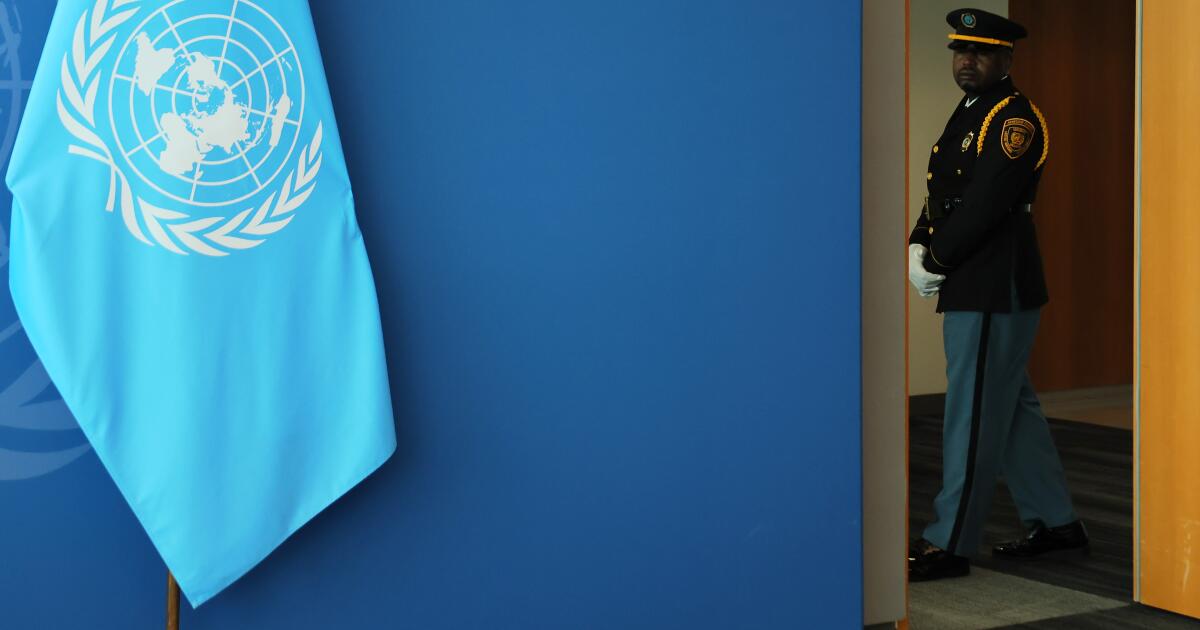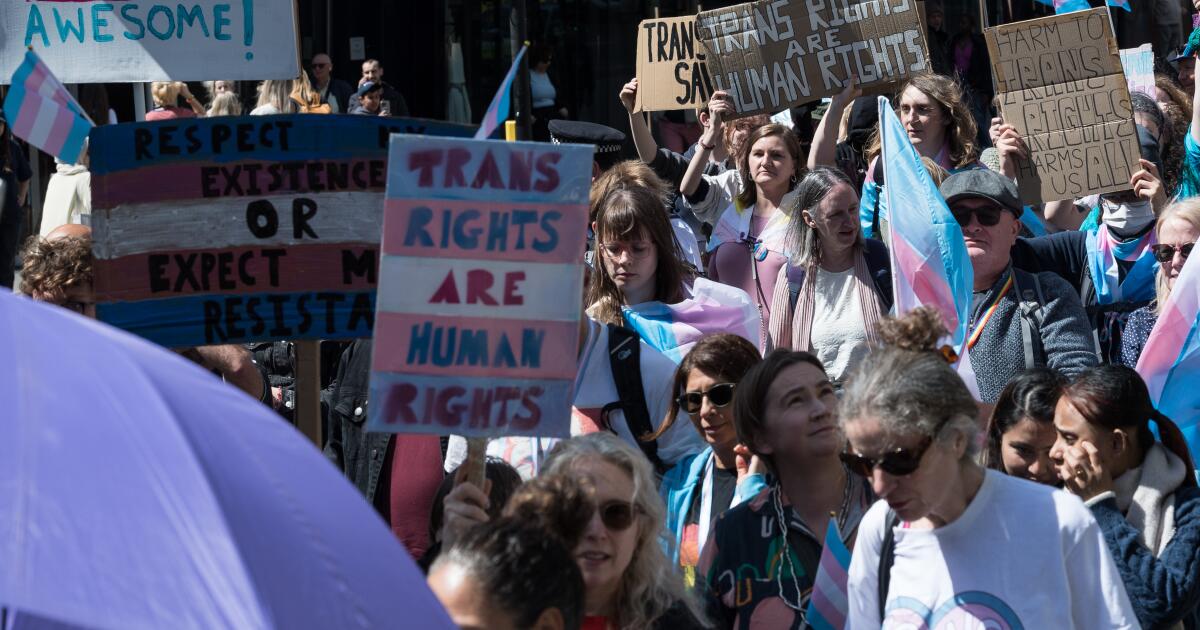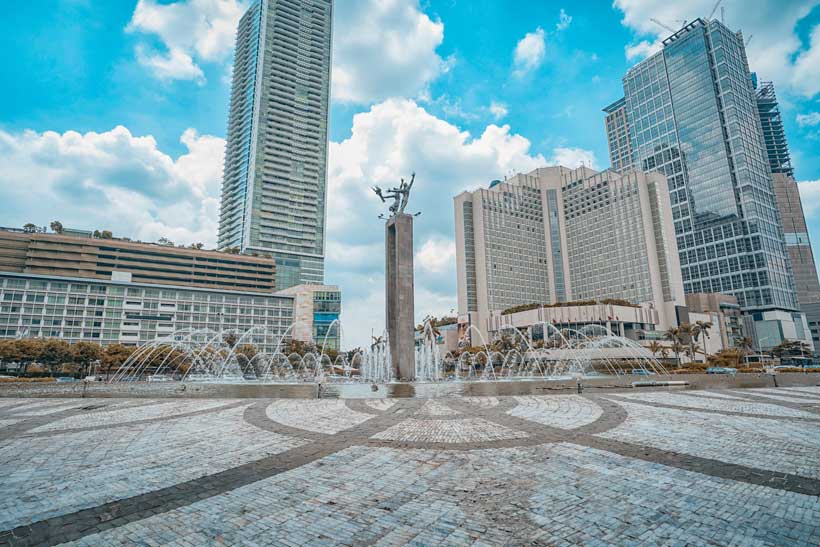Contributor: Allies are betraying the U.S. by recognizing a Palestinian state
Four of America’s nominally closest allies — Britain, Australia, France and Canada — disgraced themselves this week by recognizing a so-called Palestinian state. In so doing, these nations didn’t merely betray their Western civilizational inheritance. They also rewarded terrorism, strengthened the genocidal ambitions of the global jihad and sent a chilling message: The path to international legitimacy runs not through the difficult work of building up a nation-state and engaging in diplomacy, but through mass murder, the weaponization of transnational institutions and the erasure of historical truth.
The Trump administration has already denounced this craven capitulation by our allies. There should be no recognition of an independent Palestinian state at this moment in history. Such a recognition is an abdication not only of basic human decency, but also of national interest and strategic sanity.
The global march toward recognition of an independent Palestinian state ignores decades of brutal facts on the ground as well as the specific tide of blood behind this latest surge. It was less than two years ago — Oct. 7, 2023 — that Hamas launched the most barbaric anti-Jewish pogrom since the Holocaust: 6,000 terrorists poured into Israel, massacring roughly 1,200 innocent people in acts of unconscionable depravity — systematic rape, torture, kidnapping of babies. The terrorists livestreamed their own atrocities and dragged more than 250 hostages back to Gaza’s sprawling subterranean terror dungeons, where dozens remain to this day.
Many gullible liberal elites wish to believe that the radical jihadists of Hamas do not represent the broader Palestinian-Arab population, but that is a lie. Polls consistently show — and anecdotal videos of large street crowds consistently demonstrate — that Hamas and like-minded jihadist groups maintain overwhelming popularity in both Gaza and Judea and Samaria (what the international community refers to as the West Bank). These groups deserve shame, scorn and diplomatic rebuke — not fawning sympathy and United Nations red carpets.
The “government” in Gaza is a theocratic, Iranian-backed terror entity whose founding charter drips with unrepentant Jew-hatred and whose leaders routinely celebrate the wanton slaughter of innocent Israelis as triumphs of “resistance.” Along with the kleptocratic Palestinian Authority dictatorship in Ramallah, this is who, and what, Group of 7 powers like Britain and France have decided to reward with an imprimatur of legitimate statehood.
There is no meaningful “peace partner,” and no “two-state” vision to be realized, amid this horrible reality. There is only a sick cult of violence, lavishly funded from Tehran and eager for widespread international recognition as a stepping stone toward the destruction of Israel — and the broader West for which Israel is a proxy.
For decades, Western leaders maintained a straightforward position: There can be no recognition of a Palestinian state outside of direct negotiations with Israel, full demilitarization and the unqualified acceptance of Israel’s right to exist in secure borders as a distinctly Jewish state. The move at the United Nations to recognize a Palestinian state torches that policy, declaring to the world that savagery and maximalist rejectionism are the currency of international legitimacy. By rewarding unilateralism and eschewing direct negotiation, these reckless Western governments have proved us international law skeptics right: The much-ballyhooed “peace process” agreements, such as the Oslo Accords of the 1990s, are not worth the paper they were written on.
In the wake of Oct. 7, these nations condemned the massacre, proclaimed solidarity with Israel and even briefly suspended funding for UNRWA, the U.N. aid group for the Palestinian territories, after agency employees were accused of participating in the attack. Yet, under the relentless drumbeat of anti-Israel activism and diplomatic cowardice, they have now chosen to rehabilitate the Palestinian-Arab nationalist cause — not after the leaders of the cause renounced terrorism, but while its most gruesome crimes remained unpunished, its hostages still languish in concentration camp-like squalor and its leaders still clamor for the annihilation of Israel.
Trump should clarify not only that America will not join in this dangerous, high-stakes charade, but also that there could very well be negative trade or diplomatic repercussions for countries that recognize an independent Palestinian terror state. The reason for such consequences would be simple: Undermining America’s strongest ally in the Middle East while simultaneously creating yet another new terror-friendly Islamist state directly harms the American national interest. There is no American national interest — none, zero — in the creation of a new Palestinian state in the heart of the Holy Land. On the contrary, as the Abraham Accords peace deals of 2020 proved, there is plenty of reason to embolden Israel. Contra liberal elites, it is this bolstering of Israel that fosters genuine regional peace.
The world must know: In the face of evil, America does not flinch, does not equivocate and does not reward those who murder our friends and threaten the Judeo-Christian West. As long as the Jewish state stands on the front lines of civilization, the United States must remain at its side, unwavering, unbowed and unashamed. Basic human decency and the American national interest both require nothing less.
Josh Hammer’s latest book is “Israel and Civilization: The Fate of the Jewish Nation and the Destiny of the West.” This article was produced in collaboration with Creators Syndicate. X: @josh_hammer


